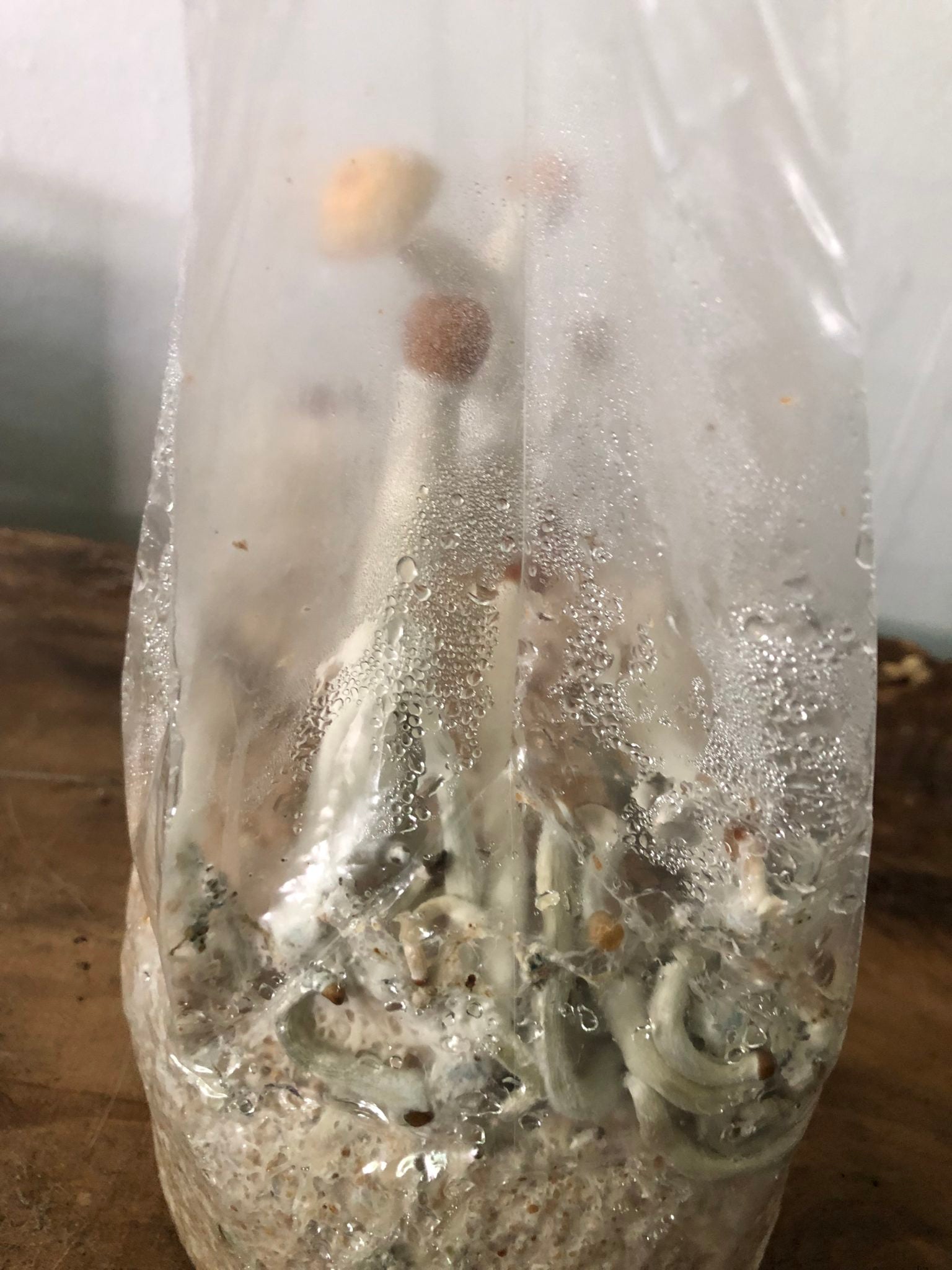One study of psilocybe cubensis conducted in January 2011, which was called “Pilot study of psilocybin treatment for anxiety in patients with advanced-stage cancer”, Had some interesting results. It was a small data set, but the results are quite promising in regards to the lessening of anxiety for patients. Here is a brief look at some of the results from this study:
“Several rating scales were used the day before, day of, and day after each session along with 2 weeks, monthly, and 6 months postsession. Anxiety significantly decreased as measured by the State-Trait Anxiety Inventory at 1 and 3 months posttreatment in the psilocybin group compared to niacin. Mood improved for 2 weeks after treatment and reached statistical significance on the Beck Depression Inventory at the 6-month point with the same comparison.”
Here are the conclusions from “Pilot study of psilocybin treatment for anxiety in patients with advanced-stage cancer”: “This study established the feasibility and safety of administering moderate doses of psilocybin to patients with advanced-stage cancer and anxiety. Some of the data revealed a positive trend toward improved mood and anxiety. These results support the need for more research in this long-neglected field.” It seems like golden teacher mushrooms may support improved mood and lessening of anxiety.
The Beckley Foundation, psilocybin, and treatment-resistant depression

The Beckley Foundation is an organization in the UK that has focused on scientifically studying psychoactive substances since 1998. According to its website, one of the organization’s goals is, “To achieve evidence-based changes in global drug policies in order to reduce the harms brought about by the unintended negative consequences of current drug policies; and develop improved policies based on health, harm reduction, cost-effectiveness, and human rights.” The team designs and directs scientific research programs in collaboration with experts in the field. One of these efforts focused on psilocybin and its impact on treatment-resistant depression, and the results were quite favorable. Take a look at the recap below:
“In 2016, the Beckley/Imperial Research Programme released a study that revealed the staggering potential of psilocybin to alleviate treatment-resistant depression, with 67 percent being depression free after one week and 42 percent remaining in remission three months later. Using the latest brain-imaging techniques, we have shed some light on how psilocybin may produce its therapeutic effects, by generating a more ‘entropic’ pattern of brain connectivity, with increased communication throughout the brain leading to more flexible modes of cognition.”
More recently, Johns Hopkins studies psilocybin in regards to anxiety and depression and continues to build evidence of success
A study released in December 2016 from researchers at Johns Hopkins entitled “Psilocybin produces substantial and sustained decreases in depression and anxiety in patients with life-threatening cancer: A randomized double-blind trial” helped to further empirical evidence of psilocybin’s positive impact on mental health. Here is a summary of the findings:
“High-dose psilocybin produced large decreases in clinician- and self-rated measures of depressed mood and anxiety, along with increases in quality of life, life meaning, and optimism, and decreases in death anxiety. At 6-month follow-up, these changes were sustained, with about 80% of participants continuing to show clinically significant decreases in depressed mood and anxiety. Participants attributed improvements in attitudes about life/self, mood, relationships, and spirituality to the high-dose experience, with >80% endorsing moderately or greater increased well-being/life satisfaction. Community observer ratings showed corresponding changes. Mystical-type psilocybin experience on session day mediated the effect of psilocybin dose on therapeutic outcomes.
Perhaps the golden teacher provides therapy through mystical experiences.


